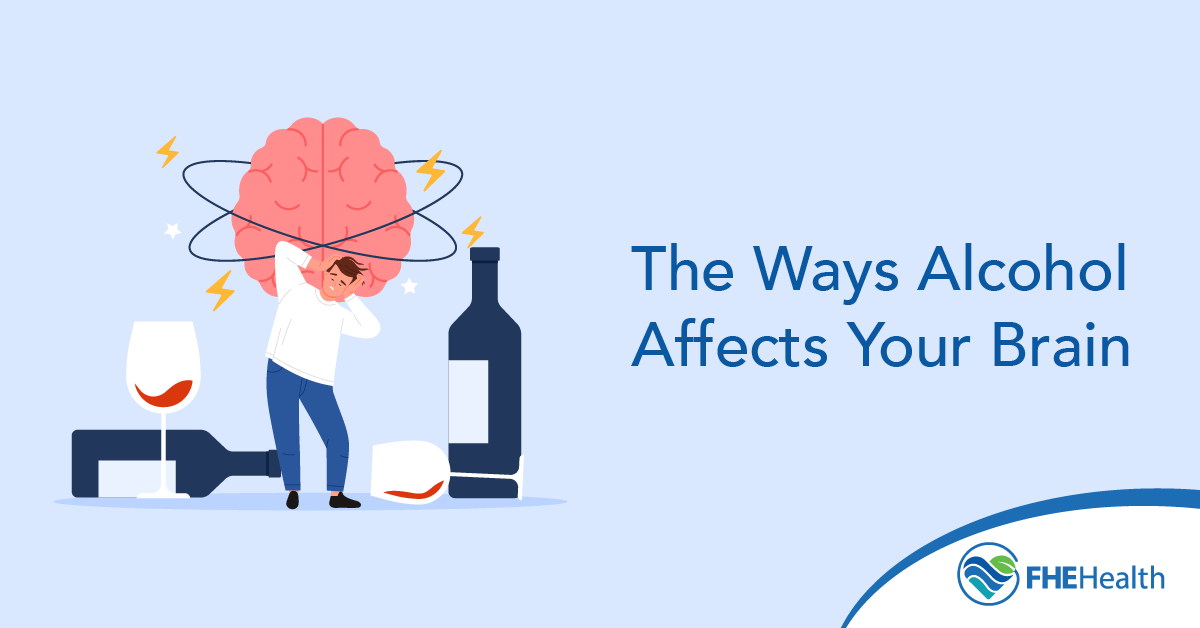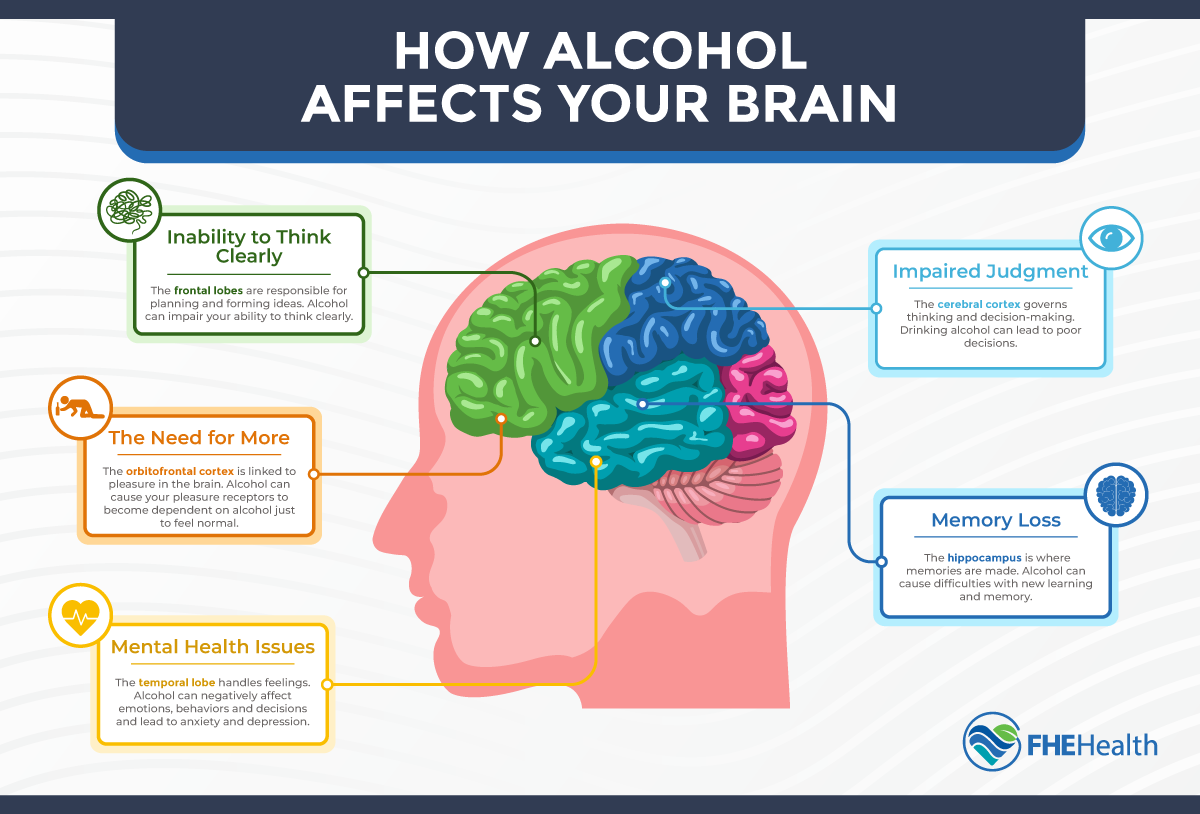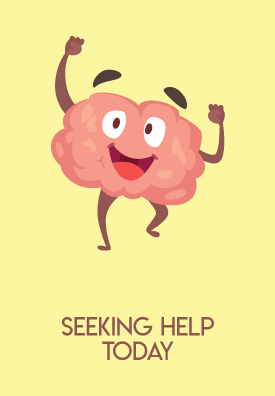
In a society where alcohol is a highly popular substance, if you don’t drink, you probably know someone who does. You (or they) might have a beer or two after a long day at the office or a couple drinks during a night out with friends on the weekend.
According to the 2023 National Survey on Drug Use and Health, 224.3 million Americans reported drinking alcohol at least once in their lives. Alcohol use is so common that many people see it as a harmless substance with temporary effects. However, when you learn how long it takes for alcohol to kick in and how alcohol affects the brain, you might think twice about drinking excessively.
Alcohol can be a nice addition to a fun evening. But what happens when alcohol stops just being fun and starts being a necessity? For a large part of the population, that is a reality. For some, alcohol isn’t a way to relax; it’s a way to be able to function. That’s because the chemical balance of the brain grows dependent on the substance, the same way it would with something like cocaine or heroin. Let’s take a look at some ways that alcohol affects the brain and could lead to a need for alcohol treatment.

1. Inability to Think Clearly
If you’ve become alcohol-dependent, your brain can’t function normally without some amount of alcohol in your system. In addition, because of the amount of alcohol it typically takes to get you feeling normal, you become inebriated to the point where you can’t think clearly anymore. This can cause a major problem when performing even simple daily tasks. Needing to get drunk to perform simple tasks is scary and can be quite dangerous. Many people with alcohol dependence drink alcohol first thing in the morning and feel they can’t function at work without a few shots in their system. For others, it means steadily drinking a little bit all day. They may be keeping alcohol hidden at work or around the house. While these behaviors may make it feel easier to function, the truth is that they prevent people from using their minds to the fullest.
2. Memory Loss
If you’ve drunk alcohol frequently in your life, you may have had a night when you blacked out. For most, it only happens on rare occasions and doesn’t significantly damage their overall memory. However, for those who are alcohol-dependent, getting “blackout” drunk can be a daily occurrence. When that happens, short- and long-term memories may sustain major damage, making it a chore to remember something as simple as the day of the week. Worse, you might not remember the choices you made the night before. You may have hurt a loved one or embarrassed yourself. Over the long term, alcohol abuse affects your normal memory, even if you aren’t drinking. As you age, your ability to recall short-term and long-term memories becomes more difficult.
3. Impaired Judgment
Alcohol can relax you, but it can also affect your judgment. People who are alcohol-dependent are often unable to stay in control. When that happens, there’s nothing to stop them from doing something that could be dangerous, such as drinking and driving. This endangers that person and those around them. Many drinkers justify their behavior and drinking with the phrase “I know my limits.” Unfortunately, it’s scientifically impossible to make the same rational, smart decisions while you’re drunk that you would when you’re sober. Alcohol is a drug that impairs judgment from the very first drink. Even if you’re an experienced drinker, the alcohol lulls you into a sense of confidence and self-awareness when you’re very far from your rational self.
4. Increased Aggression
Alcohol plays a significant role in many violent crimes, and while drinking doesn’t automatically mean you’re going to hurt others, it can increase aggression and result in out-of-character behavior. Alcohol contributes to increased aggression in a few ways. If someone is naturally angry or has poor impulse control, this is likely to be enhanced when alcohol is involved. Alcohol reduces inhibitions and decreases activity in the part of the brain responsible for impulse control. This combination can mean that those who are generally able to stop at just yelling or feeling angry end up crossing the line into physical violence. Alcohol can also make emotions seem more intense, including anger.
5. Sleep Disturbances
Many people use a nightcap as a way to help them drift off to bed after a busy or stressful day, but drinking is likely to have a negative effect on your sleep. While you may fall asleep more easily, it can decrease sleep quality and worsen other sleep-related conditions, such as sleep apnea.
Because alcohol is mainly sugar, it can also cause changes in your blood sugar throughout the night as your body processes the alcohol, which can lead to increased insomnia, especially between the hours of 2 a.m. and 4 a.m. In some cases, alcohol use and sleep problems create a vicious cycle. If you can’t sleep, you may be more likely to drink before bed in an attempt to doze off. But the alcohol decreases your sleep quality and leads to more wakefulness.
6. The Need for More
Wondering how alcohol affects the brain? Each drink triggers your pleasure receptors. It tells your brain that this is good and you feel good when using it. The problem is that once your brain realizes it likes the effects of alcohol, it wants more to keep the good feeling going. Many people think this is just building up alcohol tolerance. In many circles, being able to drink more before getting drunk is a good thing, but for the brain, it can be a bad thing. Your pleasure receptors might become too dependent on having alcohol in the brain, so they need large amounts of it to just make you feel normal. This can cause the chemical balance of your brain to be thrown off, which can lead to cognitive issues.
7. Mental Health Issues
Research shows that excessive alcohol use increases the likelihood of dementia developing. Additionally, while alcohol might provide temporary euphoria, drinking regularly may worsen depression and anxiety. This is particularly dangerous if you’re using alcohol to cope with mental illness. Increased reliance may lead to strained relationships, higher expenses and medical issues that make facing trauma even more difficult.
How Do I Get Help
If you are suffering from alcohol addiction or abuse, it is not too late to get help. In many instances, when addressed early enough, you can avoid permanent brain damage. The first step in the recovery process is medical detox. A medical detox facility is a safe place for you to become physically separated from alcohol. After medical detox, multiple levels of care are available through treatment that will equip you with the tools you need to not only not drink again but not let it control your life.
It takes courage to enter alcohol addiction treatment and move forward from an addiction. This choice can prevent future medical issues and additional damage to the brain and body, while mending areas of your life that may have been negatively affected by a drinking problem. A life of recovery can be yours, and you can break free from the chains of alcohol addiction.
Seeking treatment for alcohol abuse can be scary. Since alcohol is so socially acceptable, and since it may have been a part of life for a while, imagining life without it may be difficult. Yet reaching out for help is often the first step toward envisioning this happier, healthier life.
Are You In Need of Alcohol Addiction Treatment?
At FHE Health, our medical and clinical staff are trained to help you overcome an addiction to alcohol, so that you can begin to experience a happier and more rewarding life. You don’t have to face an alcohol problem alone. Learn how today.







